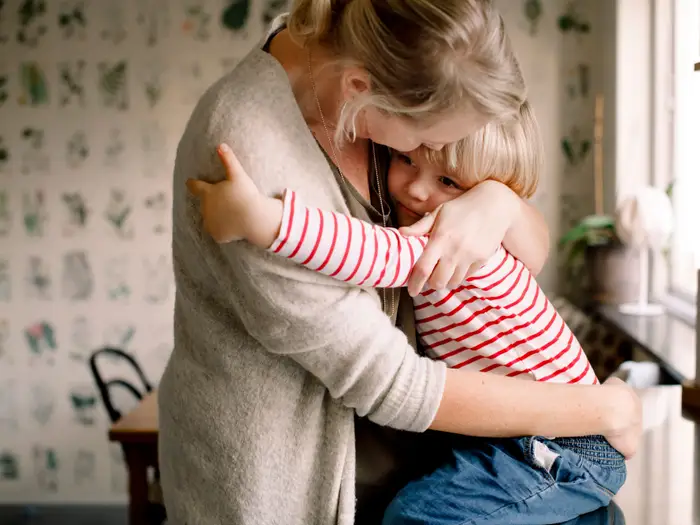What is “Gentle Parenting”?
May 25, 2023
Gen Z and Millennial moms are taking on the challenge of “gentle parenting” (also known as “authoritative parenting”) which has taken over the parenting sides of social media. This method of parenting teaches respect, affection, and empathy to children while still maintaining discipline. Younger generation parents who have adopted “gentle parenting” for their children have gone through their older generation parents’ trauma from their parenting style, and want to avoid the same trauma with their own kids.
“Authoritarian parenting may not always result in trauma,” child-development professional Kari Buchholz said. “Trauma is not necessarily due to the situation, and more so to do with how our brain is able to integrate information, and whether it can do that in a helpful and adaptive way. However, harsh and punitive parenting methods can result in a decreased ability to tolerate emotions, unhelpful thinking patterns, aggression, and can negatively affect brain development.”
Some common discipline actions, such as spanking or putting the child in their room during a tantrum, have proven to be unhealthy to a child, and in fact, only teach the child to fear their authority. With authoritative parenting, instead of controlling your child during a tantrum, the parent teaches the child self-control and self-soothing methods. This style of parenting also values validation, and teaching your child that it is okay to feel angry or sad, but to control your actions when feeling upset, communicating clearly to an adult, and asking for help when needed.
“Gentle parenting could still result in setting a limit and even possible consequences, the differences due to setting consequences that are to commensurate with the problem behavior, and typically also includes emotional validation and empathy,” Buchholz said. “For example, if a child was throwing a temper tantrum, I would likely want to understand why a child was having that emotional response in the first place, because that would dictate my response. I would validate the feeling of not being able to get what you want while also setting limits on what behaviors are and are not appropriate. I may say ‘it is so hard to not be able to get what you want, but it is not okay to hit me. We can take space in your room together until we can keep everyone safe, or we can go outside and get our emotions out outside.’”
Usually, there are three main forms of parenting: permissive, authoritative, and authoritarian. Let’s say a child wanted to go outside, but just took a bath and it’s time for bed. The parent says no, and the child starts to scream and cry. A permissive parent would say: “Oh no! We can go outside for a little bit, don’t cry!”, which is teaching the child that they can get what they want by throwing a fit. An authoritarian parent would say: “I said no. Keep screaming and I’ll take your tablet away and send you to bed earlier!”, which teaches the child that their feelings are invalid, and to fear their parents, which only leads to further anger. An authoritative parent would say: “Listen, we can’t go outside right now because you just took a bath and it’s time for bed. I understand you’re upset, but we can’t kick and scream. Do you want to take a few deep breaths together or read a story in bed?”, which validates the child’s feelings, while still setting a boundary of not acting out. This style of discipline has been proven by professionals to be the healthiest for a child’s development.
“Authoritative parenting usually has the best outcomes for kids and the parent-child relationship. However, there are lots of different things that promote a healthy child,” Buchholz said. “The healthiest parenting style will usually be one that recognizes that the child is a completely separate being from the parent that deserves respect, and also takes into account the fact that a child cannot behave as we always expect them to, as their brain will not fully develop until their 20s. The importance is typically in teaching children what they can do in difficult situations rather than using a punishment to suppress a behavior.”


